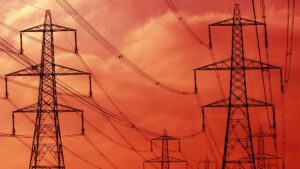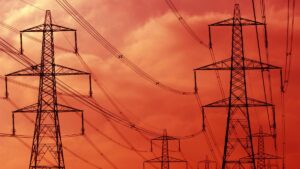
A third of voters expect their energy bills to become unaffordable this year, increasing the pressure on Boris Johnson to protect against the rising cost of living.
Most people want taxpayer money used to offset rises in gas and electricity bills but the government is being urged by Labour to scrap VAT on fuel.
Johnson is considering measures to soften the impact of rising energy bills, which could top £2,000 a year from April, and is due to hold talks with Rishi Sunak, the chancellor, and Kwasi Kwarteng, the business secretary.
A YouGov survey of 1,744 adults on Thursday and Friday suggested that 86 per cent expected their cost of living to increase this year, rising to more than 90 per cent among Conservative voters. Some 67 per cent of voters said they were worried about rising prices and 59 per cent backed using tax revenue to limit the rise in gas and electricity bills expected when the energy price cap is reviewed in April.
This rises to 66 per cent among Tory voters, who appear keener on taxpayer subsidies than Labour voters, driven by strong support among the over-65s. Perhaps the most concerning finding for Downing Street was that 33 per cent said they expected their fuel bills “to increase by more than I can afford in the year ahead”.
Allowing energy companies to defer payment of green levies is one option under consideration although they are unlikely to be scrapped entirely despite demands from some backbenchers.
Johnson is also pressing ahead with a 1.25 point rise in National Insurance in April to fund the NHS and social care, despite pleas from Jacob Rees-Mogg, leader of the Commons, to scrap it.
Voters in the poll were also divided, with 43 per cent wanting the tax rise cancelled but 37 per cent saying that it should go ahead to fund health and social care spending.
Rachel Reeves, the shadow chancellor, said that a “cost of living catastrophe that is fast approaching needs to be addressed”, setting out plans to scrap VAT on fuel for a year to cut energy bills by an average of £200. Lower income households would be given targeted help to cut bills by £600, funded by a windfall levy on North Sea energy companies. She said this would offer immediate relief, accusing Johnson of “broken promises” after he said during the Brexit referendum that cutting VAT on fuel would be a benefit of leaving the EU.
Although Tory MPs have also called for a fuel VAT cut, last week Johnson said it would be a blunt instrument that would give the biggest savings to richer people who did not need help.
Nadhim Zahawi, the education secretary, said yesterday that oil and gas companies were struggling and so the Labour plan “doesn’t add up”. He pointed to an increase in winter fuel payments as well as cuts to universal credit taper rates and “one of the fastest-growing economies in the G20” as evidence that the government was dealing with the cost of living. He said that Kwarteng was having meetings “literally all the time to deal with the energy spike”.
Analysis by the Taxpayers’ Alliance estimates that green taxes will rise by more than 40 per cent under Johnson. Its analysis of Office for Budget Responsibility figures suggests the £11.7 billion raised by measures such as the climate change levy and carbon price floor would increase to £16.7 billion by May 2024, when an election is due.
Read more:
Third of voters are living in fear of energy bills they can’t afford to pay
